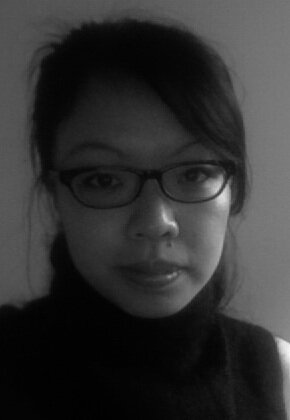The Controversial Giver
As soon as he heard about the earthquake in Japan, Chinese tycoon Chen Guangbiao sped to the devastated area with cash, supplies, Chinese flags, and his name card.
The largest annual meeting of the Chinese Communist Party was in session in Beijing last week. As the city of Nanjing's representative to the National People's Congress, Chen Guangbiao had never missed any of these meetings in 11 years.
But last Friday, for the first time ever, Chen excused himself before Congress ended. He had just heard about the great earthquake that had hit Japan.
He went to the bank and withdrew 1 million RMB (about US$152,100) in cash. He passed the money to a Chinese businessman friend in Japan who converted it into about 13 million Japanese yen.
The day after the quake, Chen flew to Tokyo, rented five mini-trucks and bought emergency supplies like water , bread, sanitary goods and blankets. He then headed out to the disaster area where he met local officials who told him he was the first foreign rescuer to arrive.
Chen handed out envelopes with 10,000 Japanese yen (US$123) to each victim.
As the supplies were distributed, Chen handed out envelopes with 10,000 Japanese yen (US$123) to each victim.
Chen later said that when the Japanese received the supplies and the envelope of cash, they held their two hands together, bowed and expressed their gratitude.
“The Japanese are very humble and amicable,” he said.
Chen's actions have been well covered in the Chinese press because he is one of China's most famous tycoons.
The boy who sold water
Born in 1968, Chen was raised on a farm in an impoverished part of China's Jiangsu province. Two of his siblings starved to death because his parents had no money to buy food.
To make ends meet, Chen started his first business at the age of ten. He would carry a pail of well water around the village and charge people a cent for a drink of as much as they wanted. Every day, he was able to make 20 to 30 cents, which amounted to about half of the daily wage of an adult then.
Chen continued working during summer vacations, riding his bicycle around the village, selling items such as like ice-sticks. When he was 17, he became the first person in the village to have a net worth of 10,000 RMB, the amount he handed out to the Japan quake victims.
He went on to study medicine, but soon returned to business. He is now the chairman of Jiangsu Huangpu Recycling Resources with an estimated net worth of 5 billion RMB (US$760 million).
China's Top Philanthropist
In China, Chen is well known for his philanthropic activities. When Sichuan was hit by a deadly earthquake in 2008, he personally went to help in the rescue work and his company donated 2.1 billion RMB (US$319 million) to the relief efforts.
A year later, he returned to Sichuan during Chinese New Year and gave out red packets containing between 200 and 2,000 RMB (US$30 – 300) to the survivors. He also donated some 2,000 computers to the community.
Chen's efforts have been praised by Chinese premier Wen Jiabao and earned him various accolades including “China's most influential philanthropist” and Chinese state television CCTV's “2009 Business Person of the Year. In an interview, he stated unequivocally that his aim was to remain China's top philanthropist, a moniker that has been given to him by the local media.
Courting controversy
Chen does not go about his philanthropy quietly, and not everyone approves of the way he goes about his good deeds. Earlier this year, he incited much criticism among Chinese netizens with a photograph he took.
Chen was planning to give out 43 million RMB to poor families in the Chinese autonomous regions of Tibet and Xinjiang, as well as the Chinese provinces of Yunnan, Guizhou and Sichuan. A few days before setting off, he posed for a photograph at a local bank in front of a wall made of 330 bundles of cash.

Some Chinese netizens said he was putting on a show, not doing charity. He has also been similarly slammed for his actions in Japan.
He sent out updates about his mission in Japan on the Chinese version of Twitter:
网友朋友们:刚才(北京时间17:50)在福岛一个倒塌的二层楼废墟中救出一名约50岁的女士,将她救出后,她不断的用日语说谢谢
“Net friends: Just (at Beijing time, 17:50) saved a woman, about 50 years old from a collapsed two-storey house in Fukushima. After I rescued her, she kept thanking me in Japanese.”
Most of the updates though were photos which showed him posing in a full suit, standing in front of and emerging from the devastation. (He apologised that he was unable to upload more photos as the file sizes were too large and he was constrained by local conditions.)


For those at the scene, there would be no mistaking the two China flag lapel pins on his jacket, and the full-sized Chinese flags draped across the mini-trucks he was using for the relief efforts. Chen told reporters that he had bought the six Chinese national flags and a stack of miniature Chinese flag stickers on his way to the Beijing airport.
“I do not only represent myself, I also bring the concern of the Chinese people,” he explained.
That was the reason behind wearing the flag pins on his jacket: so that everyone would know he was Chinese, even if he was not in the flag-draped mini-trucks. And, to be absolutely sure, he included his name card in the envelopes of money he gave out to the victims.
“I want to let everyone know there is a Chinese person behind the donations,” he said.
Next stop: USA? Singapore?



















Post new comment